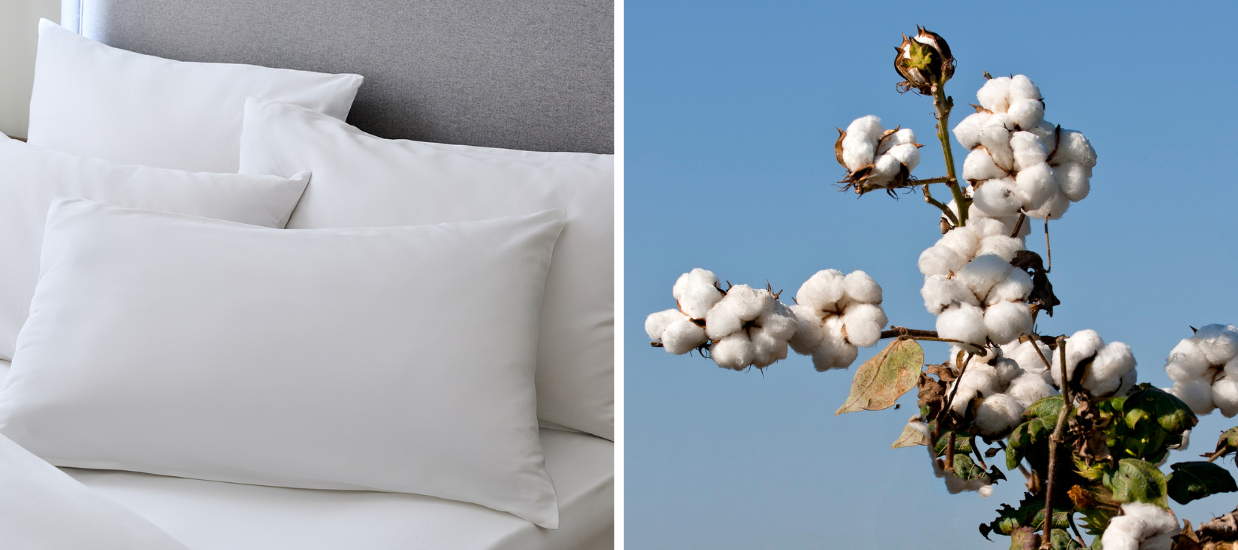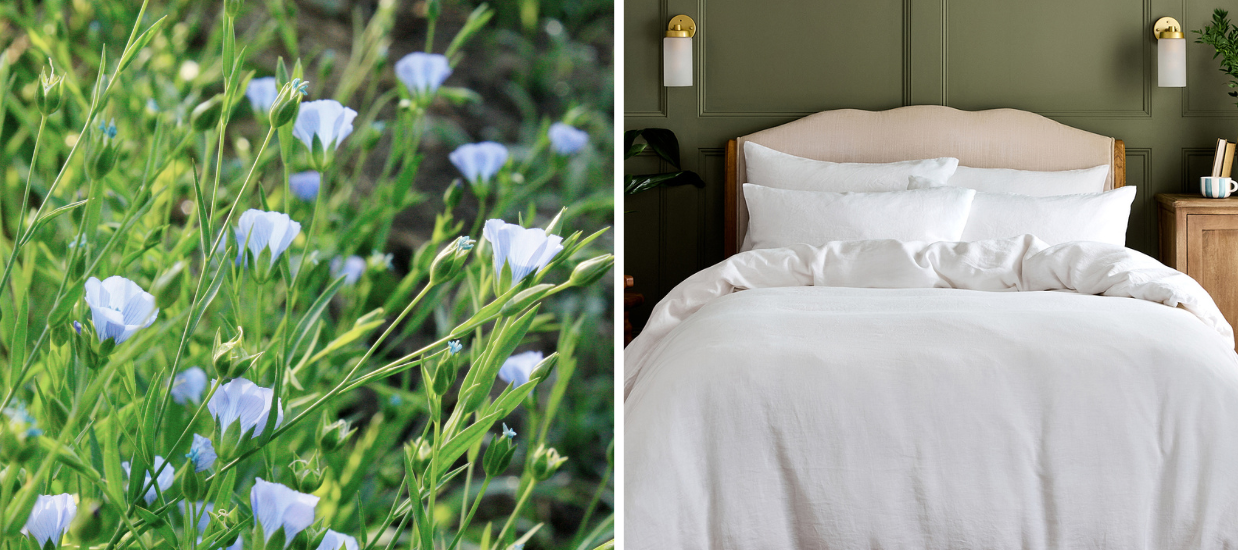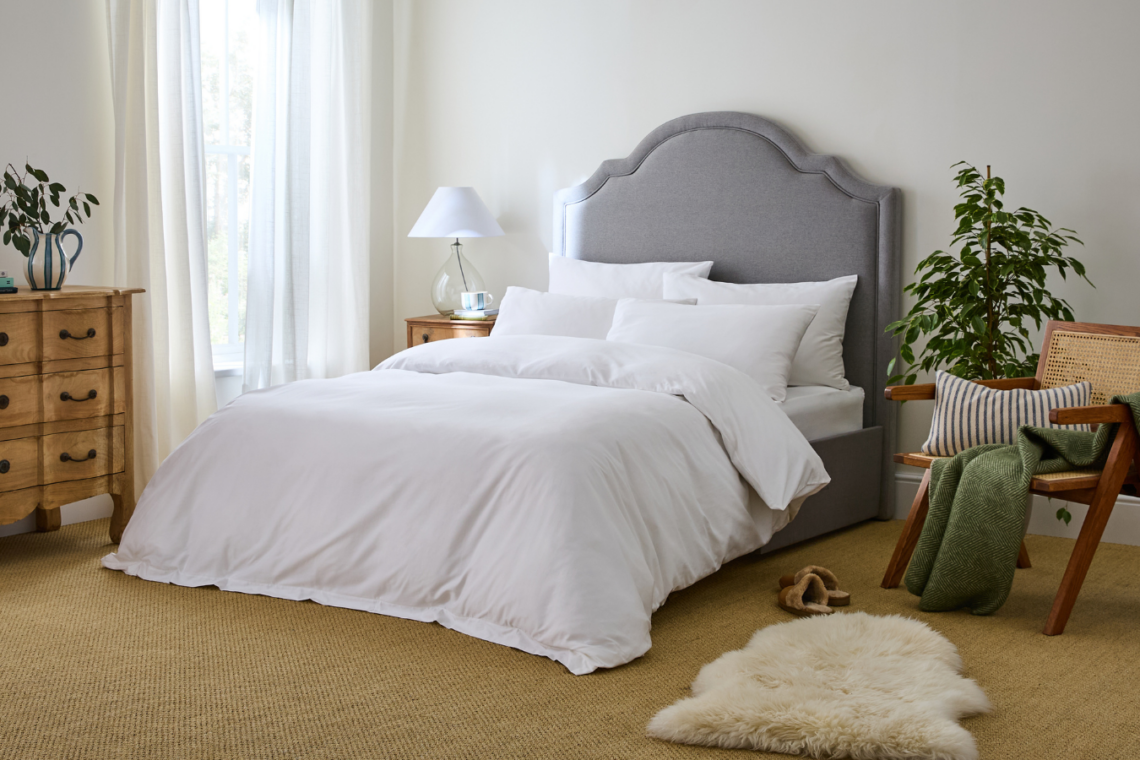
cotton & linen vs. bamboo & eucalyptus
Natural fibres are at the core of Dip & Doze, so we’re here to help break down the good, bad and ugly of each new ‘green’ textile fibre on the market.
Why do we choose to stick with 100% cotton and linen bedding? In short, not all natural fibres on the market are created or processed equally.
Bamboo
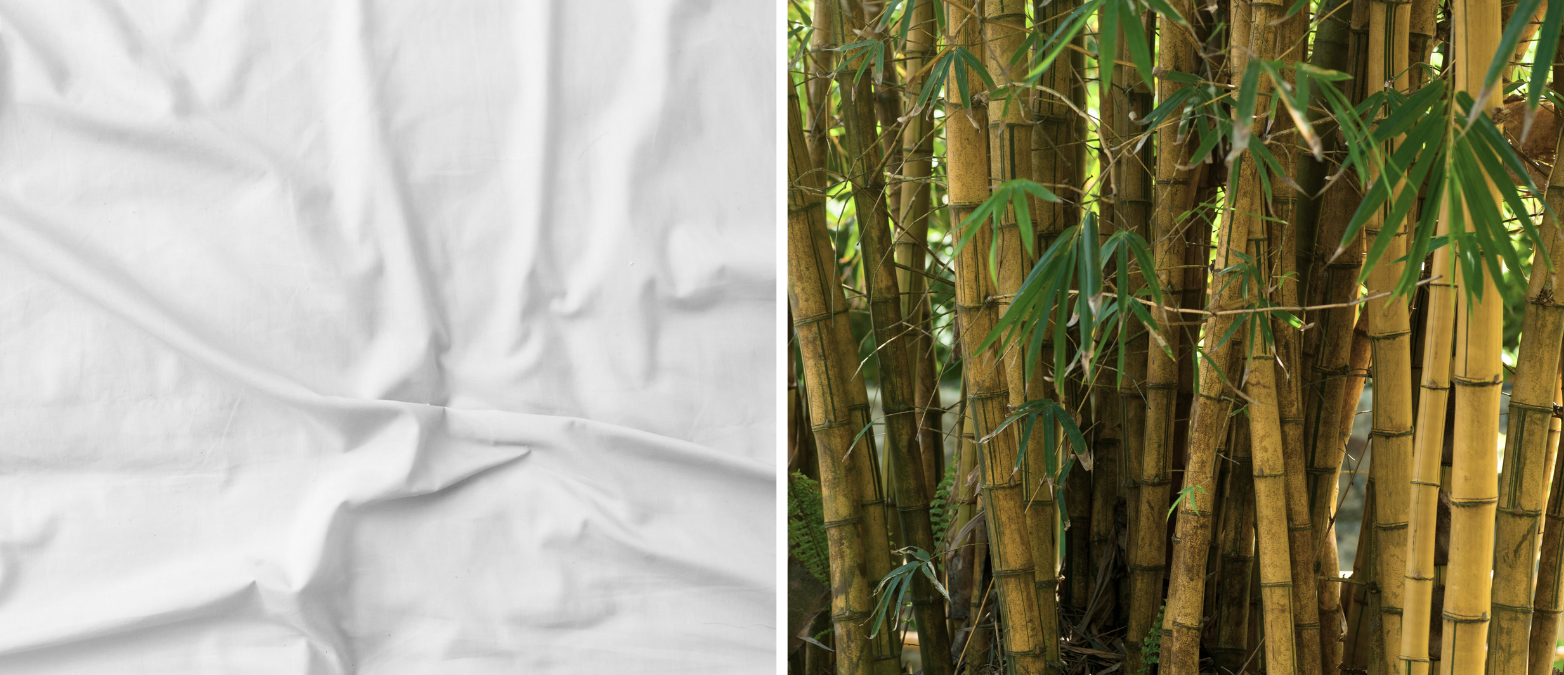 Pros
Pros
The bamboo plant grows quickly and improves soil quality. It stores 4 times more CO2 than most standard trees, whilst releasing 35% more oxygen. It ticks all the boxes when it comes to farming.
Cons
While bamboo bed sets are often marketed as being “green”, their labelling doesn’t actually specify the chemicals or intensive manufacturing methods involved in the making process. In fact, there’s still no industry organic certification for bamboo fabric because the negative impacts of its production are so adverse.
The most common method on the market for turning bamboo into fibres is the viscose method. Caustic soda (sodium hydroxide) and highly toxic carbon disulfide are used to convert the cellulose walls of the plant into liquid, before being pushed through a spinneret (like a fine sieve) into a chemical bath of sulphuric acid. Dyes containing heavy metals (such as lead and mercury) are also often used, along with harmful chemicals that can interfere with our body’s hormones.
Eucalyptus
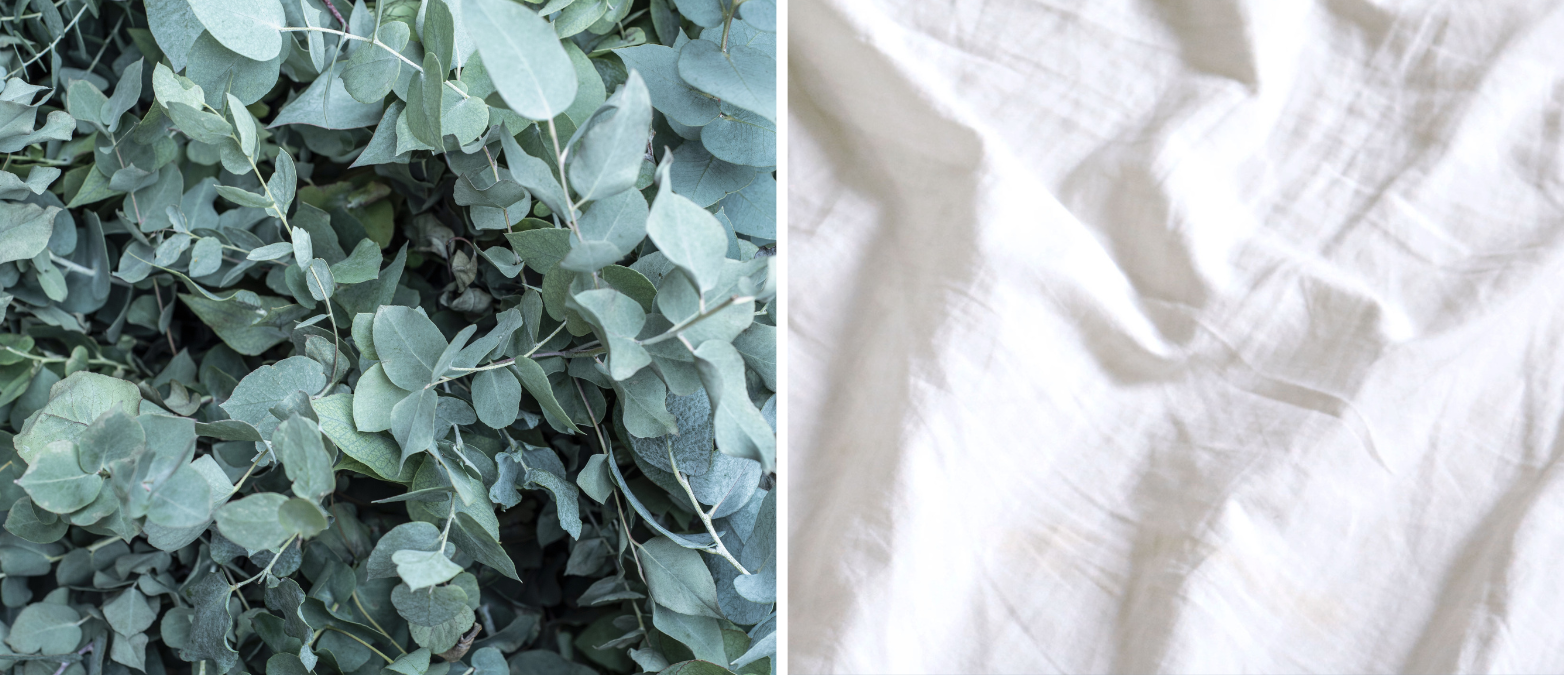 Pros
Pros
The eucalyptus plant produces a helpful oil often used in aromatherapy. It also produces natural vibrant dyes that can be used as an eco-friendly alternative to synthetic dyes. Meanwhile, its ability to grow in low rainfall makes it a possible source for deforestation projects.
Cons
Eucalyptus production involves the same process as bamboo mentioned above. The main concerns are intoxicating the atmosphere, poisoning ground waters and threatening worker health. Unless the processing is in a closed loop system (i.e., that followed by Lenzing for Tencel), such chemicals are released into the environment via untreated effluent.
Eucalyptus’ next main concern is tied to the wood sourcing, which contributes to water pollution, climate change and impacts ecosystems. An estimated 120 million trees are currently being cut down for viscose production every year (many with a high carbon store from old-growth forests that have developed over a long period of time). Certain species of eucalyptus trees also have the ability to spread rapidly – outcompeting native plants – which can disrupt local ecosystems.
Unfortunately, the list of cons for eucalyptus bedding goes on.
Cotton
Pros
In contrast, our GOTS certified organic cotton fibres are naturally softer and stronger. In turn, they don’t require harmful dyes, pesticides, or other toxic processing components. This makes organic farming practices especially beneficial for the environment. Pesticide-free farming leads to healthier soils, reducing the amount of water needed to grow crops. Because, with more organic elements in the soil, it can store up to twice as much water. Organic farming systems can also lower CO2 emissions by capturing it from the atmosphere, then sequestering it in the ground.
As opposed to conventional cotton farming, which is water intensive, our organic cotton bedding uses rainwater as its prime source of nutrition. By recycling rainwater efficiently, 80% less outside water is needed for irrigation.
Known for its long-staple build, your Dip & Doze organic cotton bedding (available as Soft & Smooth or Cool & Crisp), promises all-night breathability. It’s also hypoallergenic, making it an ideal choice for those with sensitive skin.
Cons
High quality 100% organic cotton has a higher price tag. But it’s tremendously durable—only getting better with age. This makes it a truly wonderful investment for the long term.
Linen
Pros
Derived from the flax plant, quality linen can be grown with fewer pesticides than other fibres as it’s naturally resistant to diseases. It also requires much less water compared to other crops—reducing strains on water supplies. Like organic cotton, linen requires less processing to create the beautiful fabric we all love. Our OEKO-TEX certification ensures that no harmful chemicals come into contact with our lovely natural linen.
With its excellent natural insulating properties, it also regulates body temperature—keeping you cool in the summer, yet warm in the winter. Clever, right?
Its fibres are inherently strong, allowing them to withstand frequent use. The result? A highly durable fabric that really does age like a fine wine—getting softer with every wash.
Cons
Quite like quality cotton, quality linen has a higher price tag. But our supremely durable linen is made to last, making it a long-term investment with a brilliant cost per use.
You May Also Like

hemp & tencel: the ultimate loungewear fabrics
July 13, 2023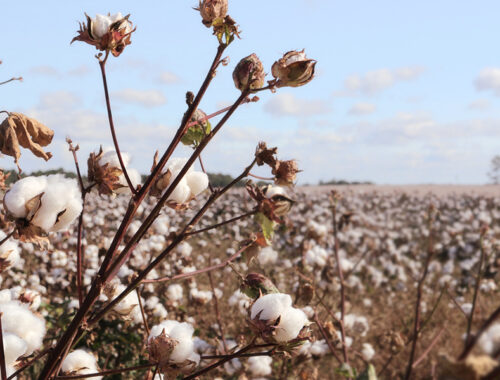
why fairtrade really matters
October 25, 2018

